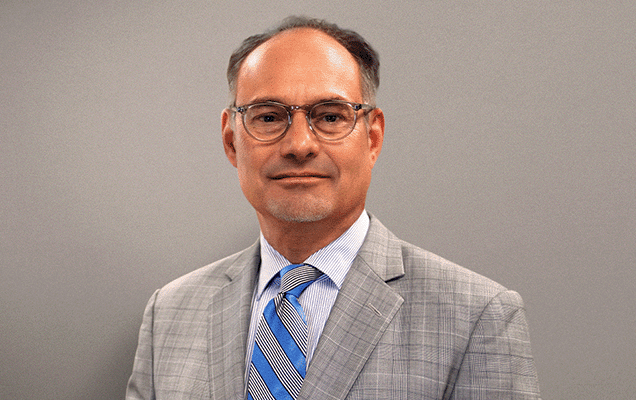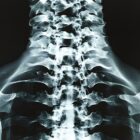Whether you already have your colloid cyst surgery scheduled or are still learning about the treatment options available in northern NJ, it can be helpful to understand the colloid cyst surgery recovery time. To assist you, the information below gives some background about colloid cysts, followed by details about the surgical options available to treat your condition.
Though every patient’s recovery is a personal process, there is a general overview of colloid cyst surgery recovery time. This will help you in your discussions with your doctor moving forward and understanding what to expect following your procedure.
About Colloid Cysts
Before discussing surgery for colloid cysts, it can be helpful to better understand the condition itself. There are spaces within the brain called ventricles, filled with cerebrospinal fluid (CSF). The third ventricle is deep within the brain. A colloid cyst is a benign growth that occurs within the third ventricle. However, just because it is benign does not mean it is harmless. The cyst can grow large enough to block the flow of CSF, causing a potentially dangerous situation.
Colloid cysts form before birth and continue to grow during a lifetime. The outside is smooth, but the inner contents can be variable, ranging from fluid to nearly solid. Many patients may never require any treatment. However, your doctor may recommend surgery if your colloid cyst is creating a blockage or may do so in the future, as this can lead to coma and even death, albeit rare. If your doctor recommends surgery, it is because he or she believes the benefits outweigh the risks and that you may experience future complications resulting from your condition.
Colloid Cyst Surgical Options
Broadly speaking, there are two surgical approaches available in the tri-state area that can be used to remove your colloid cyst. The first is traditional surgery, which takes place in a hospital setting while you are asleep. Traditional surgery begins with a craniotomy. This is a procedure where the surgeon removes a small piece of skull to access the tumor site. The surgeon removes the tumor, then replaces the piece of bone that was removed. The site is closed using sutures or staples and your recovery begins.
The second surgical method is called endoscopic colloid cyst resection, which is less invasive and can be an excellent treatment option for some patients. This procedure also takes place while you are asleep in a hospital to ensure you are comfortable the entire time.
During endoscopic resection, the surgeon does not use a craniotomy to access the area. Instead, he or she makes a small, 1-inch incision behind the hairline for access. The surgeon uses an endoscope to navigate to the area of the cyst, then eliminates it and its contents. The endoscope is removed, the incision site is sutured closed and the procedure is complete.
We are more than surgeons,
we are your support system.
Colloid Cyst Surgery Recovery Time
No two patients will have the exact same experience following colloid cyst surgery. However, having a general idea of what to expect regarding colloid cyst surgery recovery time will help you begin to plan ahead. Your personal doctor will be able to give you the most accurate idea of about your individual recovery process, so be sure to follow up with him or her to build on the information here.
Both traditional, as well as endoscopic surgery, take place in a hospital setting while you are asleep, so your immediate recovery following surgery will be in an intensive care-type unit. Your doctor will monitor your heart rate, blood pressure, breathing rate and watch for any signs of complications during this time. When you have stabilized, you will be moved to a standard hospital room to recover further.
Following traditional colloid cyst surgery, you may spend up to 1 week in the hospital recovering. This will depend on your individual condition, and some patients spend more or less time in the hospital. By contrast, patients typically only spend a day or two in the hospital following endoscopic resection. This is because the procedure is less invasive overall, with less disruption to the tissues and fewer overall risks of complications.
When your doctor determines you are ready to begin your recovery at home, you will be put on activity restrictions. This will include limiting strenuous exercise, lifting and other physical activities. As you attend follow-up appointments, your doctor will assess your recovery and will gradually lift the restrictions. Most patients are back to normal activity levels, including working, around 6 weeks following surgery. However, again, your own doctor will be able to give you the most accurate prediction for your colloid cyst surgery recovery time.
Speak with Your Doctor
The information provided here is designed to serve as a jumping-off point for a conversation with your personal doctor about your personal colloid cyst surgery recovery time. Understanding the general patient experience is helpful, but your doctor is familiar with the characteristics of your specific colloid cyst and your individual health factors. Using this information, he or she will be able to explain what you can expect in the time before, during and after your procedure.

About Dr. Jonathan H. Lustgarten
Dr. Jonathan Lustgarten is an accomplished neurosurgeon in Central Jersey and is a proud member of Neurosurgeons of New Jersey, practicing out of the Eatontown Branch office. His surgical expertise includes brain and pituitary tumor treatment, image-guided surgery, spinal and disc surgery including minimally invasive spinal fusion and alleviation of pain due to fractures in the spine. He is also well versed in the surgical and radiosurgical treatment of facial pain disorders. He specializes in Cyberknife, Gamma Knife, Gamma Linac and Tomotherapy radiosurgery. Dr. Lustgarten has been treating Central Jersey patients for over 25 years and is currently accepting new patients.
Recent Posts:






